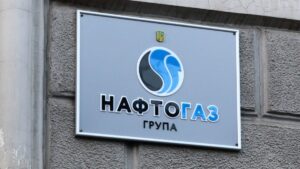
The Naftogaz Group and the European Bank for Reconstruction and Development (EBRD) have discussed financing the purchase of natural gas and supporting its production in the face of Russian attacks.
As the group reported on Friday, these issues were the focus of a meeting between Naftogaz CEO Roman Chumak and EBRD President Audrey Renaud-Basso. The event was also attended by EBRD Vice President Matteo Patrone, Managing Director for Ukraine and Moldova Arvid Turkner, and Deputy Head of the EBRD in Ukraine Iryna Kravchenko.
“Strengthening the country’s energy resilience in the face of a full-scale war, ensuring a stable heating season and providing all categories of consumers with gas are our key objectives. We are grateful to the EBRD for its support and continue to work together on financial instruments to ensure Ukraine’s energy security,” Chumak emphasized during the meeting.
He also added that in today’s environment, flexible and operational solutions in cooperation with international partners allow Naftogaz to respond quickly to crisis situations and ensure uninterrupted energy supplies.
As reported with reference to the Minister of Energy of Ukraine Herman Halushchenko, Ukraine will need to import at least 1 billion cubic meters of natural gas by the end of 2025.
At the same time, according to former Energy Minister Olha Buslavets, the country will have to import 2-3 billion cubic meters of natural gas in 2025 to cover the shortage.
According to her estimates, Ukraine should go through the heating season without serious gas supply restrictions, unless there are extreme frosts, but by the end of it, reserves in underground gas storage facilities (UGS) will amount to about 4.5-5 billion cubic meters, which means an additional need to import 2-3 billion cubic meters of gas by the end of this year.
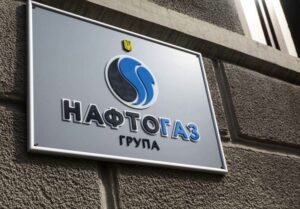
The consolidated profit of Naftogaz Group in January-September 2024 increased by one and a half times (by UAH 8.014 billion) compared to the same period last year – up to UAH 23.304 billion.
According to the consolidated financial statements published on Naftogaz’s website, its revenue for the first nine months increased by 20.3% (by UAH 33.577 billion) to UAH 199.195 billion, gross profit by 2.1 times (by UAH 33.862 billion) to UAH 65.104 billion, and operating profit by 28.4% (by UAH 7.17 billion) to UAH 32.375 billion.
“Naftogaz Group companies continue to operate smoothly despite all the current challenges. We ensure stable growth in hydrocarbon production and improve our financial performance. I am grateful to the entire team for these results,” said Roman Chumak, Acting CEO of the company.
Also, in January-September 2024, Naftogaz enterprises paid almost UAH 67 billion in taxes to the budget, the group supplies natural gas to almost 12.4 million households, continuing to supply gas at a fixed tariff under PSO.
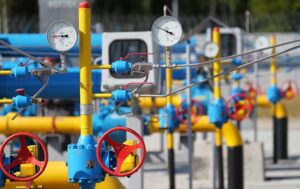
“Naftogaz has put into operation a new exploration well with a daily flow rate of 150 thousand cubic meters of gas, the group’s press service reports.
According to it, the well depth is 5400 meters. Construction of a site for the next exploration well has also begun at the field.
“Increasing gas production is of strategic importance for the energy security of our country in times of war. I thank my colleagues for their consistent and effective work in this direction,” said Roman Chumak, acting CEO of Naftogaz.
As reported, Naftogaz Group companies Ukrgasvydobuvannya and Ukrnafta produced more than 13.5 bcm of natural gas in January-November 2024.

The Helsinki District Court has satisfied the petition of Naftogaz Ukrainy and five other companies of the group and seized certain assets owned by Russia in Finland, the company’s press service said on Monday. According to its data, it is about real estate and other assets, which are estimated at tens of millions of dollars.
“This decision is part of Naftogaz’s global strategy to recover compensation for the damage caused by the seizure of assets of group companies in Crimea in accordance with the decision of the Hague arbitration,” the report said.
The company specified that this is also the first publicly known successful seizure of assets outside of Ukraine in fulfillment of the arbitral award on cases on claims of Ukrainian companies to Russia because of the expropriation of property in Crimea in 2014.
The decision is an interim step towards the actual recovery of assets in favor of Naftogaz. At the same time, interest stipulated for non-payment of funds under the arbitration award continues to accrue until the compensation is paid in full.
“Since Russia refuses to voluntarily pay Naftogaz the funds stipulated by the Hague ruling, we continue to use all available mechanisms to recover them. Today we have stood one step closer to restoring justice. At the same time, we are taking active steps to enforce the arbitration award in other target jurisdictions where there are Russian assets,” the head of the group, Oleksiy Chernyshev, said.
In Finland, Naftogaz is being represented pro bono by attorneys Mikko Leppa and Tatu Jaarinen of HPP Attorneys, supported by Covington & Burling, acting as lead legal counsel to coordinate Naftogaz’s international enforcement efforts.
As reported, in October 2016, Naftogaz and its subsidiaries initiated arbitration proceedings against Russia for damages due to the seizure of their assets in Crimea, and in September 2017 an application was filed with the tribunal at the Court of Justice in The Hague.
The Arbitration Tribunal at the Permanent Court of Arbitration in The Hague in April 2023 ordered the Russian Federation to pay Naftogaz Ukrainy $5 billion for damages caused by the seizure of assets of Naftogaz group companies in Crimea in 2014.
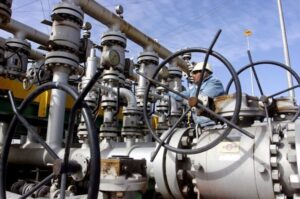
NJSC Naftogaz of Ukraine plans to import 2-3 bcm of gas, according to the published memorandum on economic and financial policy for the 5th review of the EFF program with the IMF.
“For the upcoming heating season 2024/25. Ukraine plans to import additional gas for domestic consumption in the amount of up to 2-3 billion cubic meters, while additional gas may be stored by non-residents for the needs of the EU countries in accordance with the baseline scenario,” the document says.
At the same time, it is noted that restrained domestic consumption and growing domestic production limited the need for gas imports in the last heating season.
Regarding import plans for this year’s heating season, it is noted that Naftogaz has secured additional financing for gas imports from the EBRD and bilateral donors.
If Naftogaz faces a liquidity shortage, the government is ready to assess the amount of compensation for the company’s special obligations in 2025 based on its actual documented costs, verified by the State Audit Service and other stakeholders. The relevant calculations will be finalized by the end of August 2025.
“The potential pressure on costs related to gas imports and PSO compensation will be taken into account by adjusting the fiscal balance targets to take into account the above assessment, the results of the audit of the debt of district heating companies (DHCs), available funding, and limited to UAH 60 billion (about 0.8% of GDP),” the document says.
It also notes that the energy sector reform agenda, “as soon as conditions allow,” includes additional gradual increases in gas and electricity tariffs with parallel support for vulnerable consumers, and after the war ends, it will require restoring and strengthening competition in the wholesale and retail gas markets.
It is noted that the government will adopt a roadmap for the gradual liberalization of gas and electricity markets with an implementation plan indicating the timeline for the period after martial law.
As reported, Naftogaz Group CEO Oleksiy Chernyshov said in early October in a commentary to Energoreforma that as of November 1, the company’s purchases of gas in the customs warehouse (CW) mode, which is carried out as a reserve at the expense of the EBRD loan, will be “within 500-600 million cubic meters.”
At the end of 2022, Naftogaz attracted an EBRD loan for EUR 300 million under state guarantees, which created a reserve stock of natural gas in the amount of 748 million cubic meters in the customs warehouse (CU) mode.
A new agreement on the EBRD loan to Naftogaz for EUR 200 million under state guarantees was signed in November 2023. At the time, it was emphasized that it would come into force after the state guarantees were issued. Norway and the Netherlands shared the credit risk with the bank.
The CU regime allows natural gas to be stored in Ukraine’s underground gas storage facilities for three years without paying taxes and customs duties during its further transportation from the country.
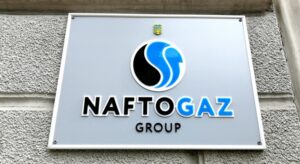
In January-September 2024, Naftogaz Group paid more than UAH 61 billion to the state budget of Ukraine and UAH 5 billion to local budgets, the company’s website reports.
In September, the company paid UAH 5.8 billion to the state budget, including UAH 0.6 billion to local budgets.
As reported, in 2023, Naftogaz Group companies paid UAH 90.2 billion in taxes, UAH 83.4 billion of which went to the state budget and UAH 6.8 billion to local budgets.